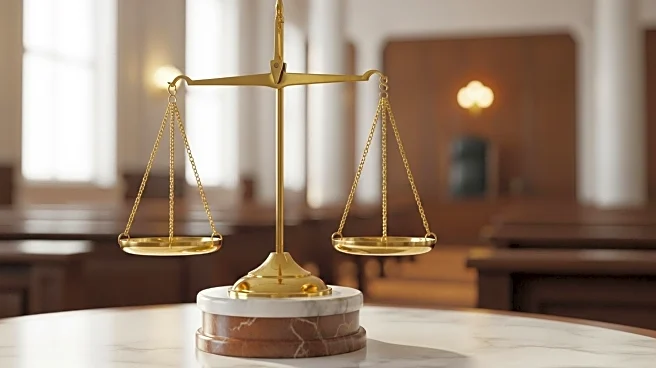What's Happening?
The hosts of ABC's 'The View' have spoken out against the Trump administration's perceived attacks on free speech, following the suspension of fellow ABC host Jimmy Kimmel. Co-host Whoopi Goldberg emphasized the show's commitment to addressing controversial topics, stating that 'no one silences us.' The suspension came after FCC Chairman Brendan Carr, aligned with President Trump, threatened to revoke ABC affiliate licenses over Kimmel's comments. The hosts criticized the government's pressure on media outlets, likening it to authoritarian tactics. Co-host Ana Navarro expressed concern over the government's use of power to intimidate and silence dissenting voices, while Alyssa Farah Griffin highlighted the importance of the First Amendment in holding those in power accountable.
Why It's Important?
The response from 'The View' underscores the ongoing debate over media freedom and governmental influence in the U.S. The show's criticism of the Trump administration reflects broader concerns about the erosion of free speech rights, a fundamental aspect of democratic governance. This incident highlights the challenges faced by media organizations in navigating political pressures while maintaining editorial independence. The situation may prompt discussions about the role of government in regulating media content and the potential impact on public discourse. As media figures become focal points in political controversies, it raises questions about the balance between free expression and regulatory compliance.
What's Next?
The controversy surrounding Kimmel's suspension and 'The View's' response may lead to increased scrutiny of media practices and government actions. Stakeholders, including media companies, civil rights organizations, and policymakers, may engage in discussions to address the implications for free speech and media regulation. The situation could influence public policy debates and industry standards, as media outlets seek to protect their editorial independence while complying with regulatory requirements. The creative community's advocacy for free speech may result in organized efforts to defend media freedom, potentially shaping future media landscapes.










